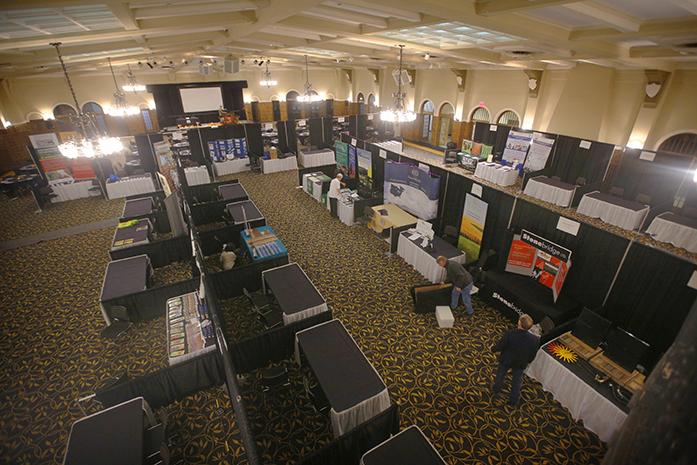By Jack Berning
The University of Iowa hosted the 16th-annual Iowa Organic Farming conference to educate and spread awareness of the benefits of organic farming, as compared to conventional farming.
The conference consisted of roundtable discussions, guest speakers, and vendor visits, all intended to cultivate a greater understanding of organic farming. It was held in the IMU Sunday and Monday.
Co-chairman of the conference George McCrory said Iowa is the leading U.S. state in organic farming. The event is hosted by the UI and Iowa State University, but was held in Iowa City because a high concentration of organic farms in and around Johnson County, McCrory said.
“It’s a great opportunity for the industry to get together,” he said. “We have a great range of both specific and more general workshops, intended to aid both small family farms and larger-scale farms from across the state.”
“The main reason many farmers don’t use organic-farming techniques is because they simply don’t know how,” said ISU horticulture Professor Kathleen Delate, a co-head of the conference. “The goal of this conference is for farmers of all backgrounds to break from conventional habits and improve Iowa farms through organic systems.”
While organic farming is much more management-intensive than conventional farming, Delate said, it is actually a cheaper way to farm.
“Organic farming is a $43 billion industry in the United States, and the elimination of pesticides and fertilizers leads to cheaper, more sustainable farming techniques,” she said.
The theme of the conference was “resiliency,” the notion that although there may be challenges and unexpected deterrents that can come with organic farming, a resilient and adaptive mindset can lead to a prosperous farm.
“Farmers need to have an open mind and be willing to change activities,” said keynote speaker Caroline Halde, an assistant professor of organic agriculture from the University of Laval in Québec City, Québec, Canada. “Although there may be challenges involved in coordinating activities and avoiding conflicts, through resiliency and adaptive behavior, farmers can achieve a more sustainable and productive farm.”



